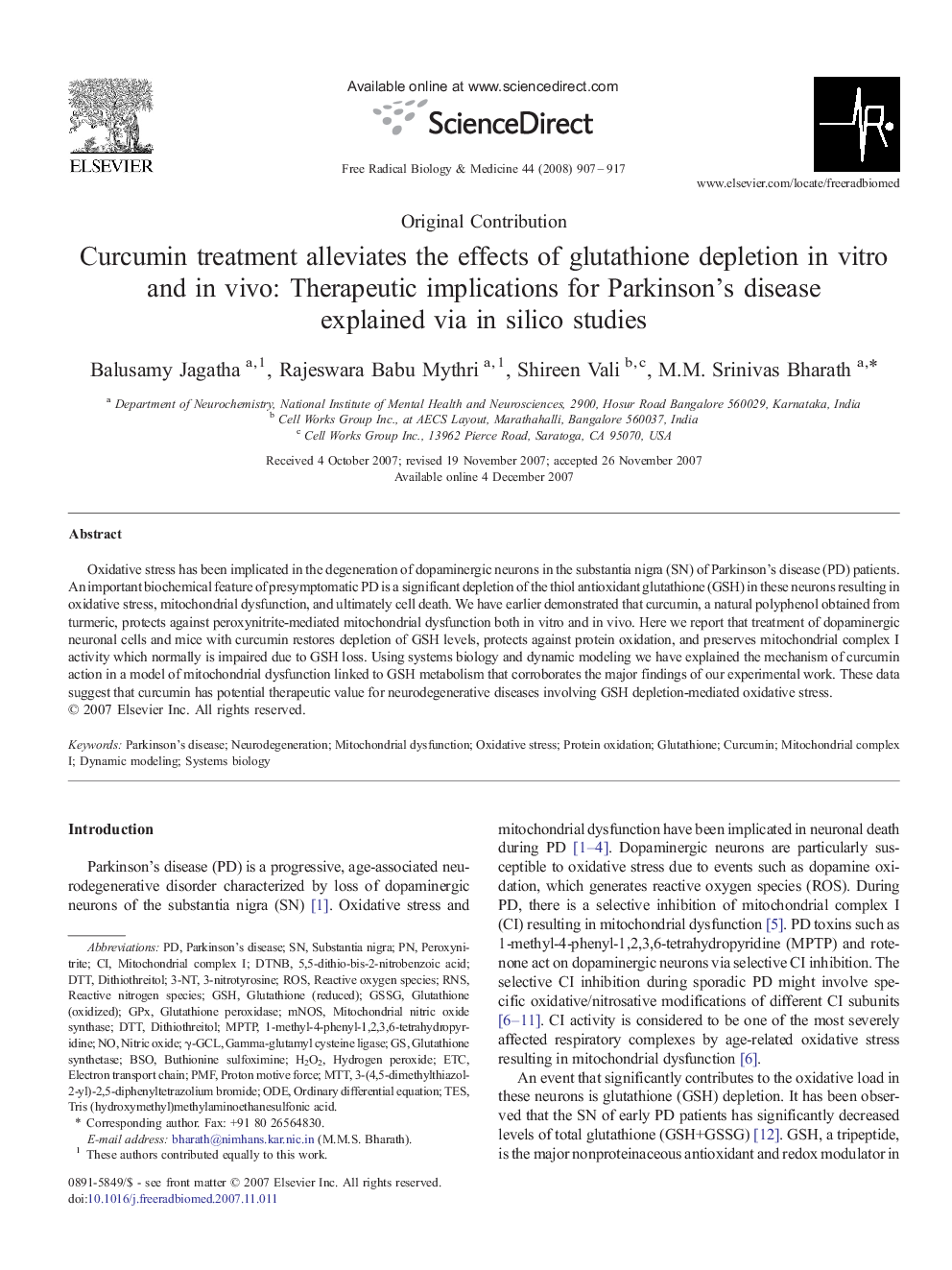| Article ID | Journal | Published Year | Pages | File Type |
|---|---|---|---|---|
| 1911233 | Free Radical Biology and Medicine | 2008 | 11 Pages |
Oxidative stress has been implicated in the degeneration of dopaminergic neurons in the substantia nigra (SN) of Parkinson's disease (PD) patients. An important biochemical feature of presymptomatic PD is a significant depletion of the thiol antioxidant glutathione (GSH) in these neurons resulting in oxidative stress, mitochondrial dysfunction, and ultimately cell death. We have earlier demonstrated that curcumin, a natural polyphenol obtained from turmeric, protects against peroxynitrite-mediated mitochondrial dysfunction both in vitro and in vivo. Here we report that treatment of dopaminergic neuronal cells and mice with curcumin restores depletion of GSH levels, protects against protein oxidation, and preserves mitochondrial complex I activity which normally is impaired due to GSH loss. Using systems biology and dynamic modeling we have explained the mechanism of curcumin action in a model of mitochondrial dysfunction linked to GSH metabolism that corroborates the major findings of our experimental work. These data suggest that curcumin has potential therapeutic value for neurodegenerative diseases involving GSH depletion-mediated oxidative stress.
